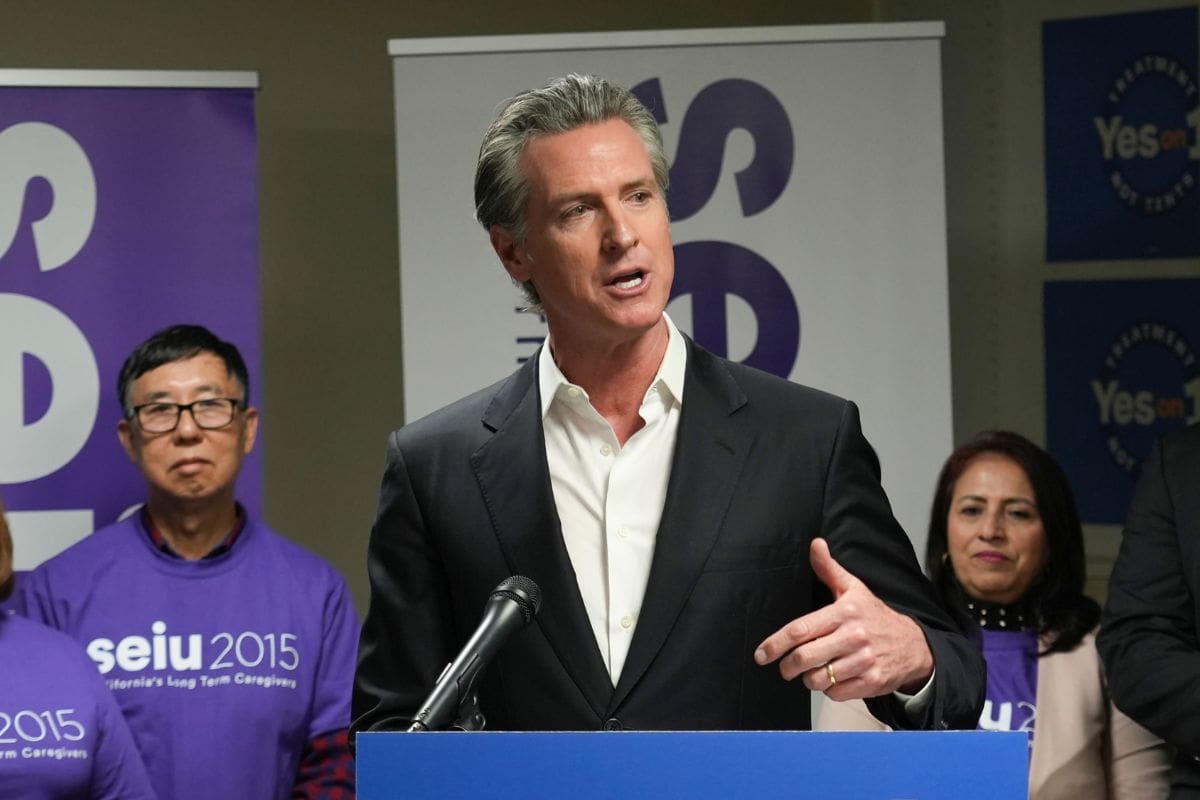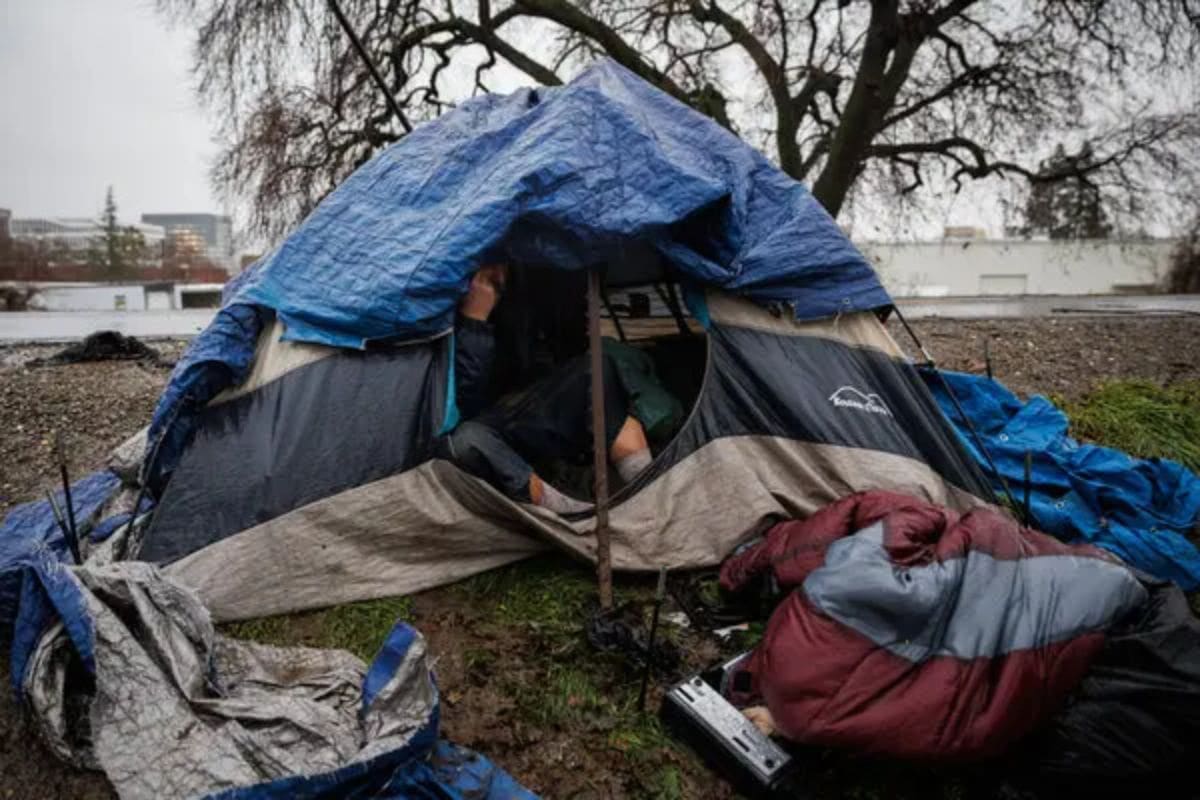California Mental Health Vote: In the realm of mental health legislation, California’s recent vote on Proposition 1 has sparked intrigue and raised eyebrows for a reason that transcends the usual political discourse.
The unexpected twist in this narrative has left many questioning the very foundation of the proposed reforms and the potential ripple effect it could have on not just the state but the nation as a whole.
As the details unfold, it becomes clear that this development is not just about policy but the core of societal values.
Proposition 1 Overview
In light of California’s evolving mental health landscape, Proposition 1 emerges as a pivotal initiative seeking to revolutionize the state’s approach to addressing mental health care challenges. Despite initial expectations, the proposition faces unexpected closeness in the vote count, adding an element of suspense to its outcome. Governor Gavin Newsom’s backing of the measure underscores its significance, highlighting the urgent need for expanded treatment centers and housing solutions for individuals struggling with severe mental illnesses and substance use disorders.
Proposition 1 represents a bold step towards reshaping California’s mental health care system, aiming to bridge existing gaps and provide comprehensive support to those in dire need. The measure promises a substantial expansion in resources dedicated to mental health services, signaling a shift towards a more proactive and holistic approach to addressing mental health challenges within the state.
Proposal Details
With a focus on addressing the pressing mental health care needs in California, Proposition 1 outlines a comprehensive plan that includes a $6.38 billion bond for expanding treatment facilities and supportive housing. This proposal aims to revolutionize mental health care in the state, addressing critical issues and providing essential support to those in need. Here are some key details of the proposition:
- Expansion of Treatment Facilities: The funding from the bond will be used to expand and enhance existing treatment facilities across California, ensuring that individuals have access to quality care and support.
- Supportive Housing Initiatives: Proposition 1 includes provisions for the development of supportive housing units, creating safe and stable living environments for individuals dealing with mental health challenges.
- Amendments to the Mental Health Services Act: The proposition seeks to amend the two-decade-old Mental Health Services Act, redirecting funds to better meet the current needs of the community and improve mental health services statewide.
- Allocation for Homeless Veterans: Around $1 billion of the proposed funds will be allocated to housing homeless veterans struggling with mental health issues or addiction, aiming to provide them with the necessary care and resources for recovery.
These details highlight the comprehensive nature of Proposition 1 and its potential to make a significant impact on mental health care in California.

Arguments in Favor
Supporters of Proposition 1 underscore its pivotal role in reshaping California’s behavioral health system, addressing critical gaps in access to treatment and supportive services. The measure is designed to tackle the acute shortage of adult treatment beds in the state, which has been a significant factor contributing to high homelessness rates. By aiming to house over 11,000 individuals, Proposition 1 supports innovative initiatives like CARE Court and extends treatment funding to homeless substance abusers. This comprehensive approach not only provides essential care to those in need but also has the potential to reduce taxpayer spending on costly jail treatments in the long run.
To further illustrate the key arguments in favor of Proposition 1, let’s break them down into a clear and concise table:
| Key Points in Favor of Proposition 1 |
|---|
| Addresses shortage of adult treatment beds |
| Supports initiatives like CARE Court |
| Extends treatment funding to homeless substance abusers |
Vote Uncertainty
Amidst the unfolding tally of votes for Proposition 1 in California’s mental health ballot, the margin of support at 50.5% signals a surprising level of uncertainty in the decision-making process, leaving over 2.5 million ballots awaiting tabulation. This unexpected turn of events has captured the attention of voters and stakeholders alike, sparking discussions on various aspects that could be influencing the outcome.
- Complex Voter Sentiment: The narrow margin of support highlights the complexity of voter sentiment on mental health care issues, indicating a diverse range of opinions within the electorate.
- Impact of Campaign Strategies: The effectiveness of campaign strategies employed by both proponents and opponents of Proposition 1 is now under scrutiny, as the outcome hangs in the balance.
- Role of Undecided Voters: The substantial number of yet-to-be-counted ballots raises questions about the stance of undecided voters and the potential impact of their decisions on the final result.
- Potential Legal Challenges: Given the close margin, there is a possibility of legal challenges or recounts, adding another layer of uncertainty to the already closely watched vote count.
As the counting process continues and the fate of Proposition 1 remains undecided, the implications of this vote uncertainty reverberate across the mental health landscape in California.
Significance and Broader Implications
The outcome of Proposition 1 in California’s mental health ballot serves as a pivotal indicator of the state’s dedication to addressing the pressing issues of behavioral health amidst post-pandemic challenges and societal complexities. Proposition 1, with its potential for substantial changes, stands as a significant milestone in the broader conversation about mental health, homelessness, and public policy within one of the nation’s most populous states. The closely contested vote not only highlights the urgency of reshaping California’s approach to behavioral health but also carries implications that reverberate beyond state lines, potentially influencing similar initiatives nationwide.
To further grasp the significance and broader implications of Proposition 1, let’s a comparative analysis:
| California’s Mental Health Vote | Broader Implications |
|---|---|
| Serves as a pivotal indicator of the state’s commitment to addressing behavioral health challenges | Could set a precedent for other states in reimagining mental health policies |
| Reflects the evolving societal complexities post-pandemic | May inspire federal initiatives to tackle mental health and homelessness in a more integrated manner |
| Underscores the need for comprehensive approaches to behavioral health crisis | Sparks conversations about the intersection of mental health, homelessness, and public policy at a national level |


ALSO READ: California Voters Split on $6.4b Mental Health Measure
News in Brief
In a surprising turn, Proposition 1, designed to reshape California’s mental health care, faces unexpected uncertainty in the vote count. Governor Gavin Newsom’s backing underscores its importance, aiming to expand treatment centers and housing for those with severe mental illnesses. The $6.38 billion proposal addresses critical gaps, emphasizing supportive housing and amending the Mental Health Services Act. Despite initial expectations, the vote at 50.5% with 2.5 million ballots left raises questions about voter sentiment, campaign strategies, and potential legal challenges. The outcome holds broader implications, signaling the state’s dedication to behavioral health amidst societal complexities, potentially influencing national initiatives.
Our Reader’s Queries
How many signatures for ballot initiative California?
For an initiative petition, the minimum signature requirement is set at 8% for a state constitution amendment or 5% for a statute. These percentages are based on the number of voters in the latest gubernatorial election.
Does California have a mental health Act?
Proposition 63, also recognized as the Mental Health Services Act (MHSA), was endorsed by California voters in 2004 to address the mental health needs of over 2 million individuals, including children, adults, and seniors, facing potentially debilitating challenges each year in the state.
What is the mental health issue in California?
In California:
Approximately 1 in 7 adults has encountered mental illness. 287,000 youth with major depression remain untreated. A staggering 82% of surveyed homeless adults have faced serious mental health conditions.

